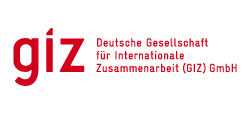To guide the necessary transformations in sectors of the economy, the Paris Agreement invites countries to formulate and communicate long-term low-emission development strategies (LTS). Such LTS will help countries establish their vision of a decarbonized economy and identify cross-cutting and sectoral policy roadmaps to be implemented over time to achieve their vision in an economically beneficial and socially just manner. Governments in the LAC region are making progress in the formulation of LTS. However, given the new nature of this instrument, there are many doubts about its relevance, its role in public policy and investment planning, the basic elements that constitute it, and the processes and tools for its formulation. It is therefore necessary to address what LTS are, how they can be developed and how they can play an effective role in climate action, sustainable development and green recovery.
Scientific evidence indicates that the global sum of emission reduction efforts that each country has committed to in its NDCs is insufficient to reach the 1.5oC climate target (IPCC, 2018; UNEP, 2019). Specifically, Latin America and the Caribbean as a region has been decarbonizing its economies at a lower rate than required to meet the NDCs (ECLAC, 2019). This is why, at the 2019 World Climate Summit, convened by the UN Secretary General, a call was made to. increasing the ambition of the NDCs to be submitted by countries by 2020, bringing new actors into the process. In the current context of the health crisis generated by COVID-19 with major socioeconomic impacts, NDCs can be a vehicle that contributes to the recovery process.
Latin America and the Caribbean has one of the highest growth rates of CO2 emissions from transport among all regions, with emissions increasing by 50% between 2000 and 2016, stemming from increased passenger and freight transport activities. The global pandemic caused by COVID-19 has further increased the challenges in advancing the region's decarbonization agenda. However, this crisis also presents a great opportunity to innovate and improve the quality of transportation activities to avoid a post-COVID-19 economic recovery. reorient transportation activities back to the most polluting and energy-intensive modes.





